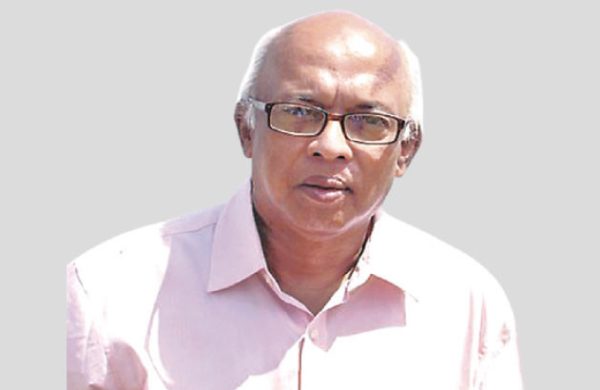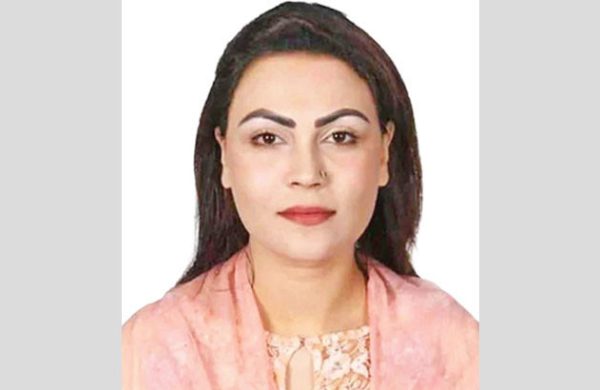Challenges to media freedom in post-Hasina Bangladesh
- Update Time : Friday, January 10, 2025

–Rahat Minhaz–
After the student-led mass uprising in July-August 2024, a lot of expectations emerged within society, which was normal. The media sector is no exception. During Sheikh Hasina’s 15-plus years of hybrid regime, standard journalism practices declined drastically due to certain actions of a group of pro-Awami League journalists. It would be more appropriate to call them activists of the regime. The press wing of the ousted prime minister and a particular intelligence branch exerted a kind of pressure on our media outlets. That’s why, after the Awami League’s fall in August, people expected major changes in this sector. However, these expectations, under the interim government led by Prof Muhammad Yunus, have already experienced setbacks for many reasons. It is unfortunate that professional journalists who played a pivotal role in ousting Hasina are now facing unfortunate situations.
After the massive fire at the secretariat on December 26, another controversial decision related to journalism was made. Due to security concerns, the interim government suspended accreditation cards for journalists, including visitor and other passes. Barring others from the secretariat may be necessary, but restricting journalists from performing their daily duties is not acceptable. Although the press wing of the chief adviser clarified the issue and a temporary pass-issuance process was put in place, this decision ultimately did not bode well for media freedom. The Editors’ Council and other journalists’-rights-based organisations issued statements saying that such decisions are a threat and an obstacle to independent journalism. By observing the situation closely, I can assume that this particular decision did not help journalism at all. However, I strongly agree with the authorities that many unprofessional journalists are holding accreditation cards for purposes other than journalism. These should be cancelled as early as possible.
Another burning and unfortunate issue is the firing of five senior journalists from Somoy TV. No doubt, this media outlet was one of the notorious propaganda machines of Sheikh Hasina. It systematically spread the regime’s disinformation. On the other hand, this channel also targeted individuals who were critical of the ousted fascist regime. That said, firing journalists through “mob justice” is not acceptable. The information ministry and the press wing of the chief adviser failed to address this issue. This was undoubtedly done through the misconduct of student leaders. The press wing and the government should have taken proper action against it, but they did nothing. It has already become an international issue, which does not align with the reputation of Prof Yunus at all.
Yes, we are well aware that different media outlets under Sheikh Hasina became almost party propaganda cells. However, after her fall, intervening in TV channels and newspapers is not acceptable either. Alongside the spin doctors of these outlets, many professional journalists have also lost their jobs in recent months. These decisions were made under pressure and without following due process. A journalist of ATN Bangla is one of them; as far as I know, he had supported the students’ movement. Yet, the ATN Bangla authorities fired him. The government did nothing in these journalists’ aid. At the very least, it could have issued a strong statement against this malpractice.
Though Sheikh Hasina has fled, and her press and intelligence wings have been dissolved, has the sense of fairness in free journalism disappeared? Not at all. Senior journalist and editor of the daily Manab Zamin, Matiur Rahman Chowdhury, pointed out this issue during a public discussion. I think pressure groups—including some anti-discrimination student activists, government members, powerful political parties, and others—are already acting against media freedom.
I want to conclude with the example of journalist Khaled Muhiuddin, a renowned journalist who faced severe backlash on social media mainly for criticising student leaders. He also became a target after inviting a leader of Bangladesh Chhatra League, student wing of the Awami League, as a guest on his show. Hasnat Abdullah, convener of the anti-discrimination student movement, and Sarjis Alam, secretary of the July Shaheed Smrity Foundation, said Khaled Muhiuddin was “betraying the blood of the martyrs” by promoting Chhatra League. Though the proposed show was not conducted supposedly due to legal reasons, this issue has certainly cast a shadow over media freedom.
According to a report published by Reporters Without Borders (RSF) in May last year, Bangladesh ranks 165th out of 180 countries in the Press Freedom Index. Moreover, RSF identified Bangladesh as one of the most dangerous countries for journalists in their 2024 round-up report.
We don’t want Bangladesh to be labelled as a dangerous country for journalism. We don’t want further degradation of press freedom, and we don’t want to lose the sense of fairness in professional journalism again. Hopefully, the interim government will take prompt and necessary steps in this regard. A new Bangladesh certainly deserves it.
(Rahat Minhaz is assistant professor of mass communication and journalism at Jagannath University. He can be reached at [email protected].)
Views expressed in this article are the author’s own.



















